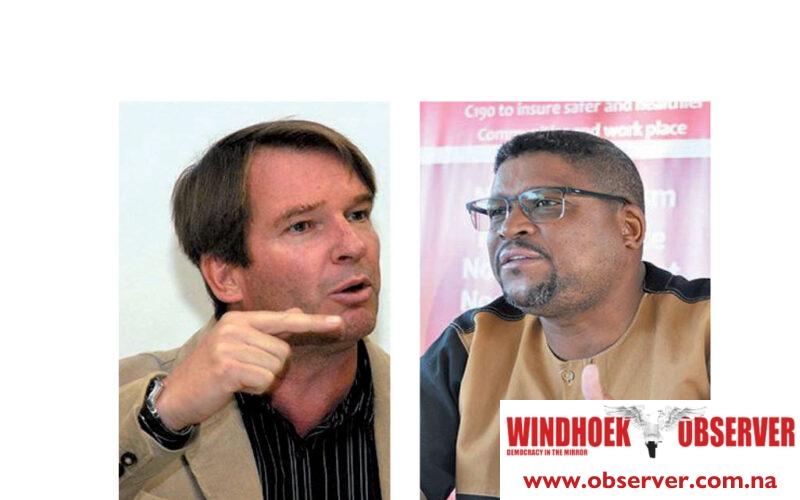Justicia Shipena
The Teachers Union of Namibia (TUN) has opposed the government’s decision to limit the use of the Public Service Employee Medical Aid Scheme (Psemas) to private healthcare facilities.
On Friday, President Netumbo Nandi-Ndaitwah announced that shehe had instructed the health ministry to work on a plan to redirect Psemas usage from private to public health institutions.
She said this shift aims to boost investment in public hospitals and clinics.
“We don’t use the state facilities and that is why I said, minister of health, with your team, I gave them a timeframe. We will start with senior civil servants and senior politicians. The government medical aid will be there, but for you and me, we should use the state facilities. So that we are serious about making sure that state facilities are put to standard to service the nation properly. It is just fair,” she said.
TUN secretary general Mahongora Kavihuha warned that implementing this directive without proper consultation and research would infringe on the rights of public servants.
“You cannot force people to use certain health facilities. Health is a freedom issue. If the decision is across the board, it will compromise individuals’ freedom of choice,” Kavihuha said.
He said some civil servants have already secured complementary cover because of the limited scope of Psemas.
Forcing them to rely only on public facilities would be unfair, he added.
Kavihuha also questioned the basis of the decision, saying there is no evidence that public servants are overusing medical aid.
“There is no research that says public servants are overusing medical aid or finishing it too early. If there is a problem, let’s see the research. Let’s see the evidence and recommendations before making a decision,” he said.
He blamed certain staff rules for driving up medical aid claims.
“Public servants are forced to produce a doctor’s certificate even when self-medicating. If they don’t, they risk unpaid leave. This forces them to visit doctors more often, which in turn leads to more medical aid claims,” said Kavihuha.
Kavihuha criticised the government’s top-down approach, saying it leaves no room for dialogue.
“Why was there no meeting with public servants? Why are we not part of the discussion? These decisions affect us directly. We should be consulted.”
He said the union does not support decisions made without involving those affected.
“We need social dialogue. We are in a democratic country. Everyone must be called to the table. This is about our health, our rights. Pronouncements cannot replace consultation.”
He warned that such unilateral actions could strain relations between the government and public servants.
In April, reports showed that there were plans for a directive to be issued that all senior civil servants under Psemas must begin using public healthcare facilities from April 2026.
However, no enough details were released.
The government has a year to assess the feasibility of this transition, which prime minister Elijah Ngurare said would cost N$16 million.
Reports from the same month indicate that the government spent over N$3 billion on more than 200,000 civil servants receiving treatment in the private sector under PSEMAS during the 2023/24 financial year.
Total government spending on the scheme during that period stood at N$3.34 billion.
Health upgrade
Labour analyst Herbert Jauch said the move could save the government money if paired with real improvements in public health services.
“Yes, it will definitely save government money because the money then spent on health care is spent at public institutions, so it returns to the state. That is definitely one of the advantages,” he said.
He cautioned that the success of this policy depends on improving public healthcare quality.
“When all the civil servants or most of them use public facilities, these facilities have to be able to cater and provide quality services. So that is the dual strategy.”
Jauch said public confidence in state healthcare has dropped due to declining standards, and this must be reversed through targeted investment.
“We have seen for so long how public health care facilities declined, and then those who could afford it just ran off to the private sector. The president is very aware of that and tries to reverse it, but it will require quite a bit of investment in the public health care facilities.”
Asked whether the plan is fair to civil servants who contribute to medical aid, Jauch said that depends on the quality of services provided.
“Yes, if the services they get in the public sector, the public hospitals and public clinics are good, then it will be a fair trade. If not, then there will be a lot of rumblings and a lot of dissatisfaction. The aim is to improve those services to such a level that everyone can go to the public facilities, including the public servants.”
In 2023, the ministry of finance recovered N$7 million from retirees who failed to reapply for enrollment in Psemas.
This followed reports that the government paid around N$1 billion to ineligible individuals between 2020 and 2022.
A preliminary audit by Deloitte flagged this and recommended an investigation.
In 2021, Psemas received an extra N$230 million during the mid-year budget review—N$200 million to cover a shortfall due to Covid-19 and N$30 million for subscription fees, on top of N$2.6 billion already allocated for the financial year.
That same year, in September, the finance ministry removed 15 162 former civil servants from the scheme after it found they were not contributing fees but remained covered.




